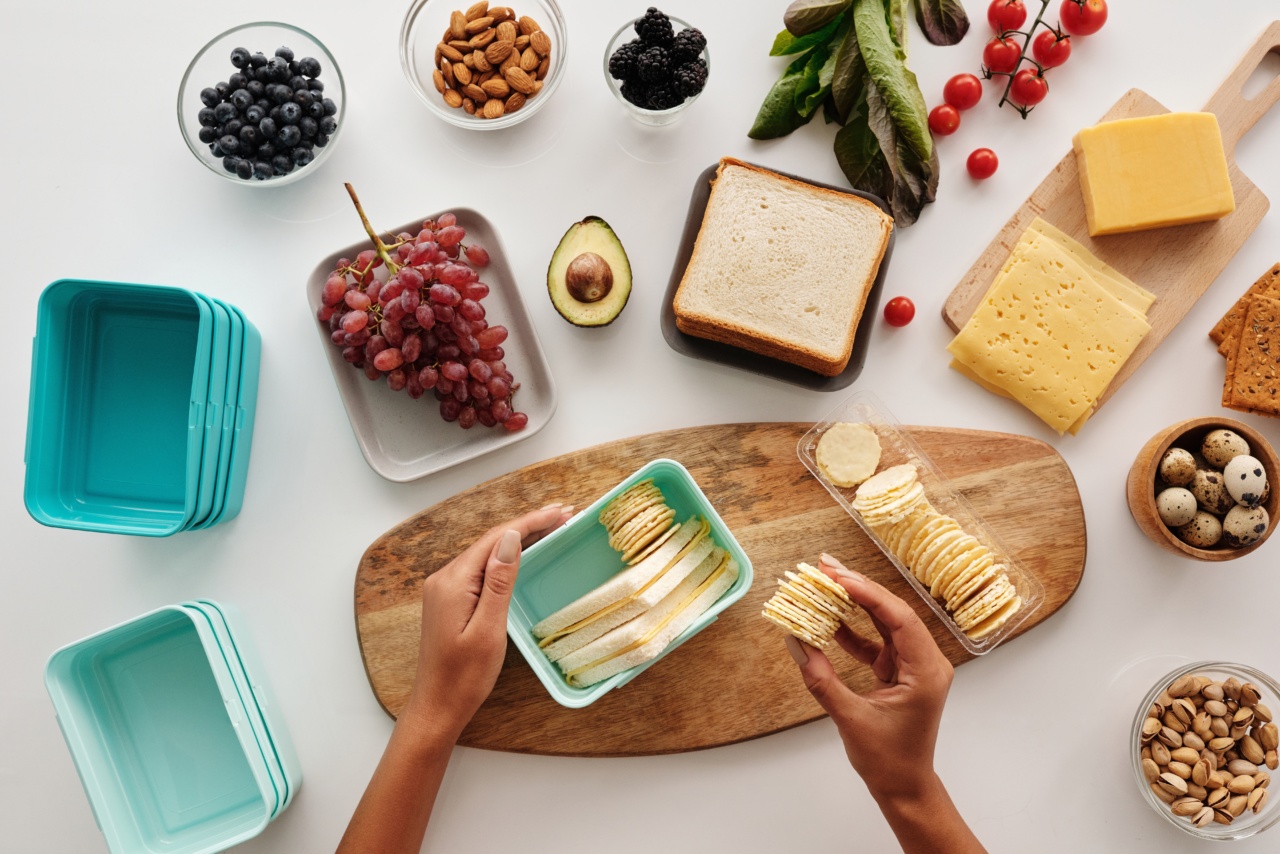Bile removal surgery, also known as cholecystectomy, is a surgical procedure that involves the removal of the gallbladder due to various reasons ranging from gallstones, inflammation of the gallbladder, and cancer.
The gallbladder plays a vital role in the digestion of fats by producing bile, which aids in the breakdown of fats into fatty acids. Without a gallbladder, bile flows directly from the liver into the small intestines, which can cause digestive problems. Therefore, it is essential to follow a healthy diet after undergoing bile removal surgery.
In this article, we will discuss foods to avoid and foods to include in your diet after bile removal surgery.
Foods to Avoid
After bile removal surgery, there are certain foods that you should avoid to prevent digestive problems, including:.
1. Fried Foods
Fried foods are high in fat, which can be challenging to digest without sufficient bile production. Therefore, it is advisable to avoid foods that are deep-fried, pan-fried, or stir-fried.
2. Spicy Foods
Spicy foods can irritate the digestive system, leading to discomfort and diarrhea. Therefore, it is essential to avoid foods that are high in spice, such as chili peppers and curry.
3. Dairy Products
Dairy products can be hard to digest, especially for people without a gallbladder. Therefore, it is advisable to avoid high-fat dairy products such as whole milk, cheese, and ice cream.
4. Red Meat
Red meat is high in fat, which can be challenging to digest without sufficient bile production. Therefore, it is essential to avoid red meat such as beef, pork, and lamb.
5. Processed Foods
Processed foods are high in fat, sugar, and salt, which can be hard to digest and lead to digestive problems. Therefore, it is advisable to avoid processed foods such as pre-packaged meals, fast food, and snack foods.
6. Caffeine
Caffeine can stimulate the digestive system, leading to diarrhea and discomfort. Therefore, it is essential to limit or avoid beverages that contain caffeine such as coffee, tea, and soda.
7. Alcohol
Alcohol can irritate the digestive system, leading to discomfort and diarrhea. Therefore, it is essential to avoid or limit alcohol consumption after bile removal surgery.
8. Carbonated Drinks
Carbonated drinks can lead to bloating and discomfort. Therefore, it is advisable to avoid or limit carbonated drinks such as soda, sparkling water, and beer.
9. High-Fat Foods
High-fat foods can be hard to digest without sufficient bile production. Therefore, it is essential to avoid high-fat foods such as butter, mayonnaise, and fried foods.
10. Raw Vegetables
Raw vegetables can be hard to digest, especially for people without a gallbladder. Therefore, it is advisable to avoid raw vegetables such as carrots, broccoli, and cauliflower.
Foods to Include
After bile removal surgery, there are certain foods that you should include in your diet to aid digestion and promote overall health, including:.
1. Lean Protein
Lean protein sources such as chicken, turkey, fish, and tofu are easy to digest and promote muscle growth and repair.
2. Whole Grains
Whole grains such as brown rice, quinoa, and oats are rich in fiber, which aids in digestion and promotes heart health.
3. Fruits
Fruits such as apples, bananas, and berries are high in fiber and vitamins, which aid in digestion and promote overall health.
4. Vegetables
Cooked vegetables such as spinach, sweet potatoes, and zucchini are rich in fiber and vitamins and are easy to digest.
5. Low-Fat Dairy
Low-fat dairy products such as skim milk, Greek yogurt, and low-fat cheese are good sources of protein and calcium.
6. Nuts and Seeds
Nuts and seeds such as almonds, chia seeds, and flax seeds are rich in fiber, protein, and healthy fats, which aid in digestion and promote heart health.
7. Healthy Fats
Healthy fats such as olive oil, avocado, and nuts are essential for overall health and aid in the absorption of vitamins and minerals.
8. Herbal Tea
Herbal teas such as peppermint and chamomile can aid digestion and promote relaxation.
9. Water
Drinking sufficient water can aid digestion and prevent dehydration.
10. Probiotics
Probiotics such as yogurt and kefir can aid digestion and promote healthy gut bacteria.
Conclusion
After undergoing bile removal surgery, it is essential to follow a healthy diet to aid digestion and promote overall health.
Avoiding fried foods, spicy foods, dairy products, red meat, processed foods, caffeine, alcohol, carbonated drinks, high-fat foods, and raw vegetables can help prevent digestive problems. Including lean protein, whole grains, fruits, vegetables, low-fat dairy, nuts and seeds, healthy fats, herbal tea, water, and probiotics in your diet can aid digestion and promote overall health.





























